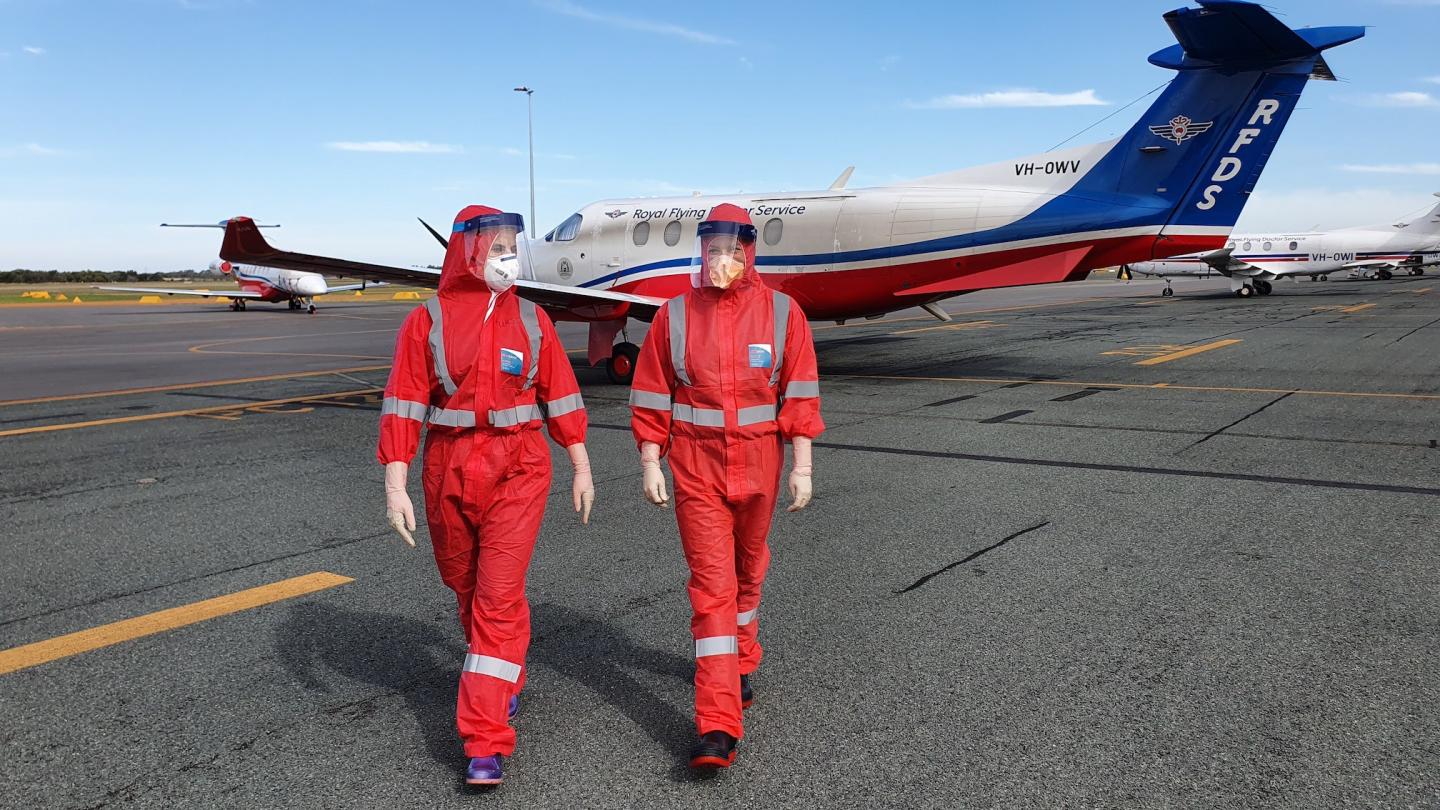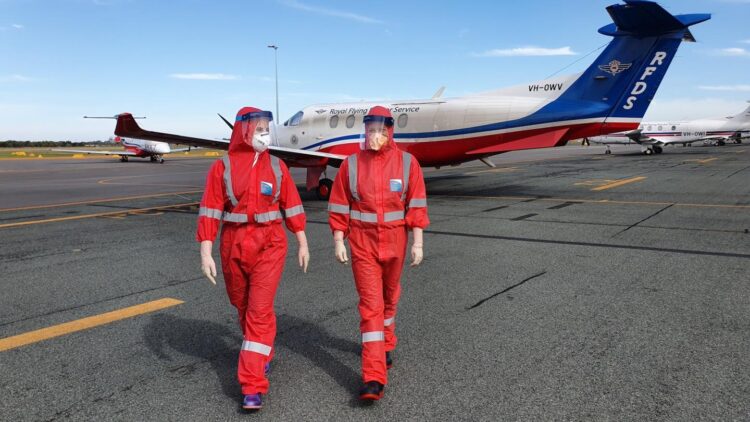Spike in evacuations for heart conditions

Credit: Royal Flying Doctor Service
New data released this week by Australian researchers reveals the impact of the COVID-19 lockdown period on aeromedical retrievals in rural and remote regions.
Researchers say while the social isolation measures led to a reduction in overall aeromedical activity during the lockdown in 2020, once the restrictions were lifted, evacuations increased significantly.
These findings are published in the Internal Medicine Journal, comparing aeromedical evacuation trends in Australia during the pre-restriction, lockdown and post-restriction periods last year.
Australian researchers, including Royal Flying Doctor Service (RFDS) Director of Public Health and Research, Dr Fergus Gardiner, and Dr Marianne Gillam from the University of South Australia (UniSA), say fewer aeromedical retrievals were carried out during the lockdown, but the proportion of vulnerable infants and adults with heart conditions who were evacuated was much higher.
“This may reflect patients delaying early intervention due to social isolation measures and limitations in accessing primary healthcare and cardiac services,” Dr Gardiner says.
Limited access to local cardiac surgeons in remote regions between March and May 2020 led to a spike in RFDS aeromedical retrievals for babies with congenital malformations, as well as adults with heart conditions.
Almost 17,000 aeromedical retrievals were undertaken in the first half of 2020, a drop of 1144 compared to the same period in 2019, with heart patients comprising 18 per cent of the evacuations, injuries accounting for 16 per cent and diseases of the digestive system 9 per cent.
Dr Gardiner says 230 patients suspected of having COVID-19 and six confirmed cases were among those evacuated from remote regions in 2020, mostly during the lockdown period.
“It should be noted that none of the areas where these suspected COVID cases were evacuated had pathology testing services,” he says.
Fewer cancer patients were evacuated but retrievals increased significantly once the social isolation measures were lifted.
“Many oncologists within Australia only performed essential treatments during the lockdown, mainly because their cancer patients were more immunocompromised and leaving their homes would have left them more exposed to infection,” Dr Gillam says.
“Oncologists had to weigh the risks of death from COVID-19 against the benefits of cancer therapy and these risks are amplified during aeromedical retrieval.”
Reductions in metabolic and respiratory diseases as well as skin infections, attributed to improved hygiene and social isolation during 2020, were also reflected in the aeromedical statistics.
“Future research needs to consider social isolation trends in primary healthcare settings,” Dr Gillam says.
###
Notes to editors
Data for aeromedical retrievals was taken from three periods: pre-lockdown (28 January to 15 March 2020); lockdown (16 March to 4 May 2020) and post-lockdown (5 May to 23 June 2020).
“Aeromedical retrieval diagnostic trends during a period of Coronavirus lockdown” is published in Internal Medicine Journal. It was selected as the editor’s choice paper in the most recent edition.
Researchers from the RFDS, University of South Australia, University of Western Australia, University of Melbourne and Department of Rural Health in SA, WA and Queensland were involved in the study.
Media Contact
CANDY GIBSON
[email protected]
Related Journal Article
http://dx.





